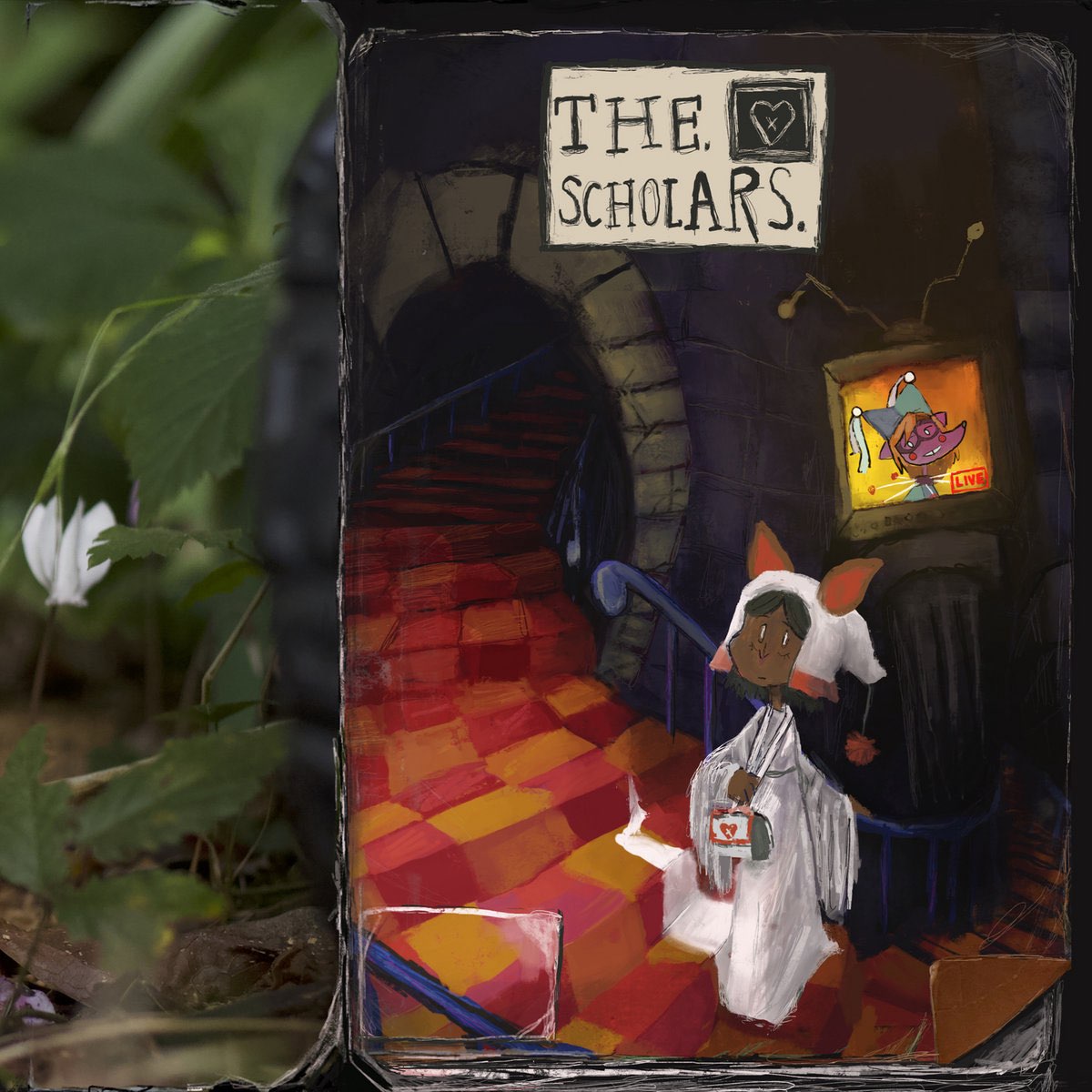Car Seat Headrest
The Scholars
MATADOR
ABOVE THE CURRENT
In the project’s calculated return to analog warmth and tightly composed sound design, Car Seat Headrest’s new LP The Scholars reinvigorates the long-dormant form of story through sound and situates itself alongside narrative-driven, genre-defining works such as Pink Floyd’s The Wall and The Who’s Tommy. Both an artistic leap and a meditative echo of rock history, The Scholars translates Will Toledo’s language of suffering, identity, and transformation into an ensemble of tragicomic characters, layered mythos, and a philosophical inquiry on meaning to create a rock opera worthy of a standing ovation.
Self-produced by Toledo, the album holds the contemporary sheen of hyper-digital indie gloss despite being recorded mostly analog, which aids in distancing us from the archaic subjects and scholars of the fictional Parnassus University. But in that sonic veil of illusion, we get the opportunity to wade through a record fully realized and spiritually sacral: an album marking Car Seat Headrest’s valiant stride into the rock canon. Like bouncing from classroom to classroom, the vocal orchestra of rock legends (yes, Mozart included) informs CSH’s ear, and some tonal dialects can be heard shifting throughout the tracks. “Reality” has the oaky guitar of Floyd’s “Wish You Were Here” while riffing on the arid-electronica of Kraftwerk, and the penultimate dramaturgy “Planet Desperation” recalls the sacred-secular tension of a Bach cantata or a Leonard Cohen ballad.
Notably, opener “CCF (I’m Gonna Stay with You)” evokes the tragic delusions common in Romantic literature while bearing the hallmark of Brechtian arrangement in its abrupt shifts in tempo and mood. “Gethsemane,” with its extended structure and dynamic movements, functions almost liturgically as it begins in intimate reflection and builds toward a spiritual crescendo. We’ve seen this before with Twin Fantasy’s “Beach Life-in-Death,” but in contrast with that 2011 album, track narratives on The Scholars run less like psychological portraits of Will Toledo than archetypal vessels for greater meaning. Our protagonist Rosa is a functional avatar in a modern allegory, and we find significance in her relatability and struggle toward spiritual rebirth, as we might have with Chaucer or Milton.
The Scholars is a work of narrative ambition and formal precision, situating itself within a lineage of iconic rock operas while remaining urgently contemporary in its spiritual concerns. Rather than pastiche, Car Seat Headrest absorbs their references and recontextualizes them into something distinctly modern. Each track builds off the last to develop a defiant, post-internet work concerned with alienation, multiplicity, and meaning-making in our overly extracted system of data. It’s a necessary disturbance and complete invasion of the reality we live in today, and it reminds us of how the constructed, performative nature of identity can often come at the cost of something greater. Completely career-turning, Car Seat Headrest hasn’t been this bold since Teens of Denial.







